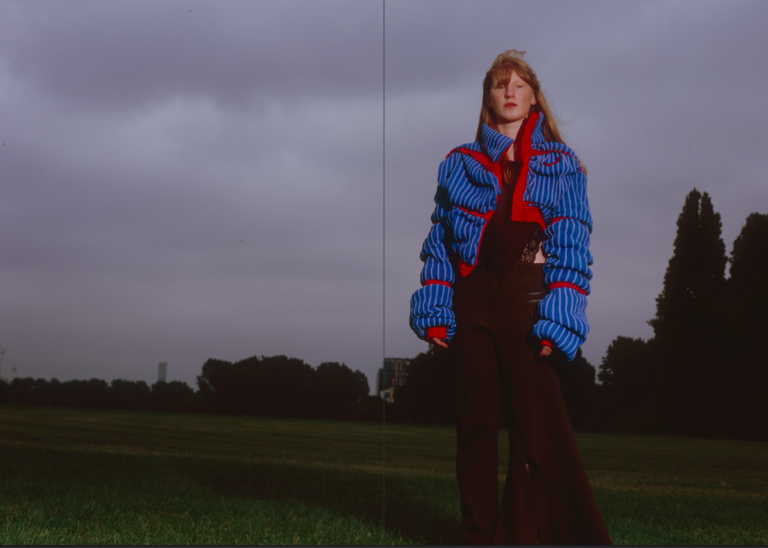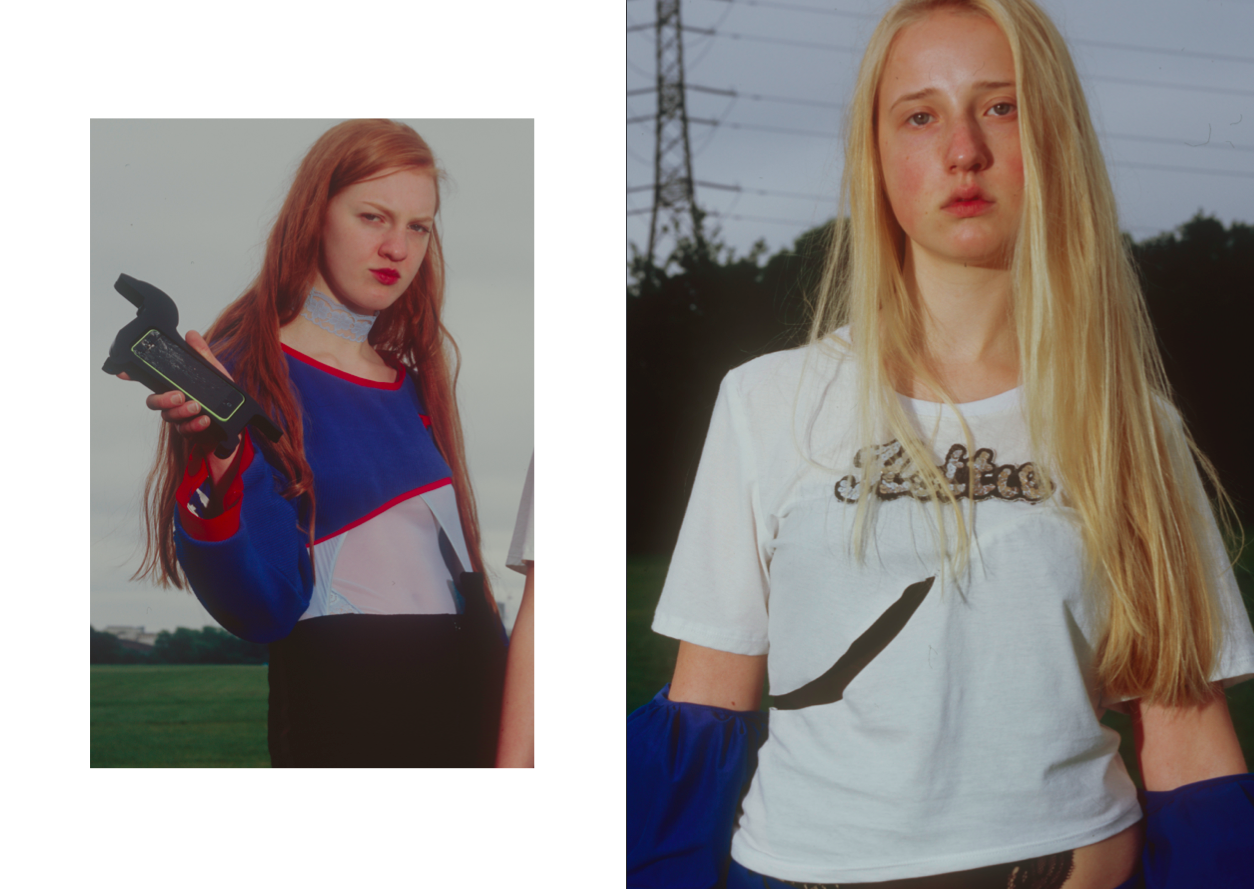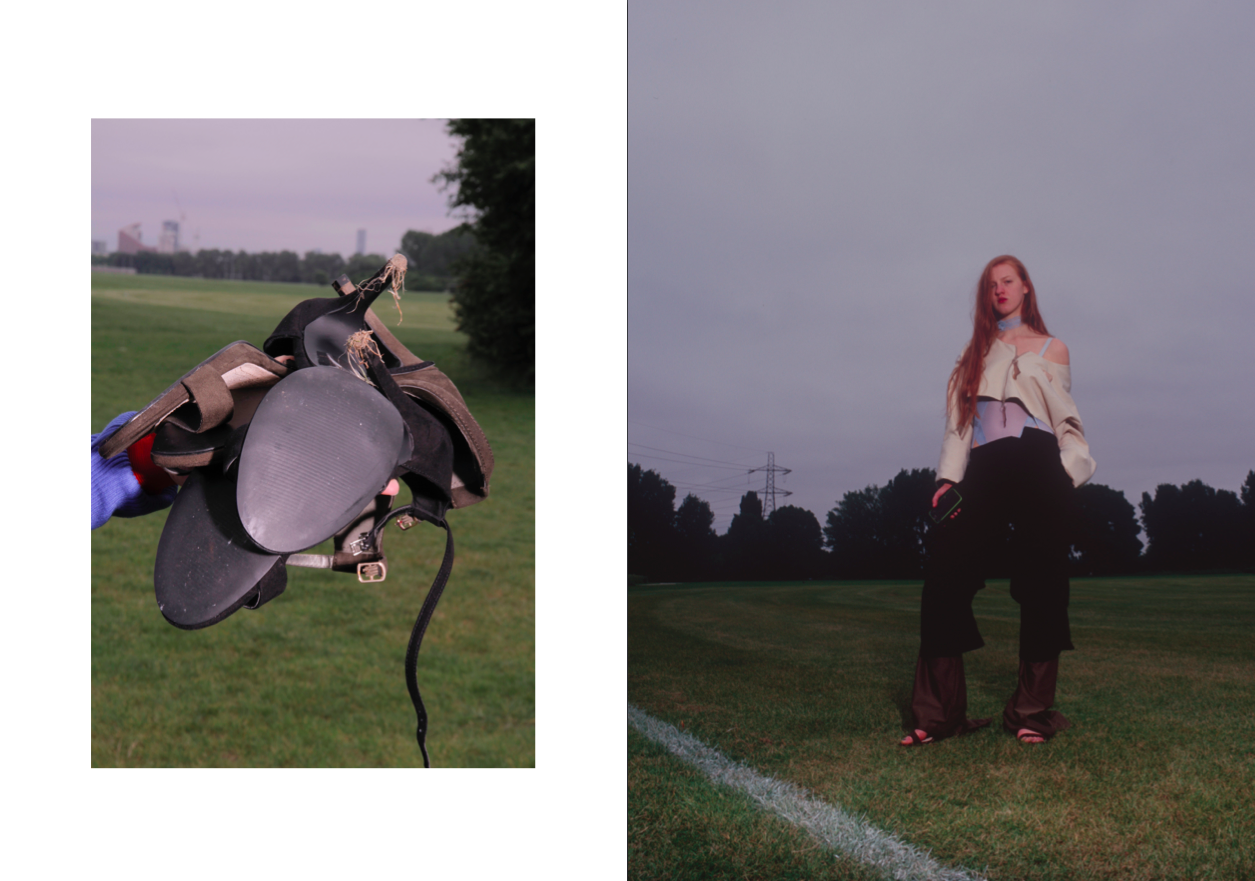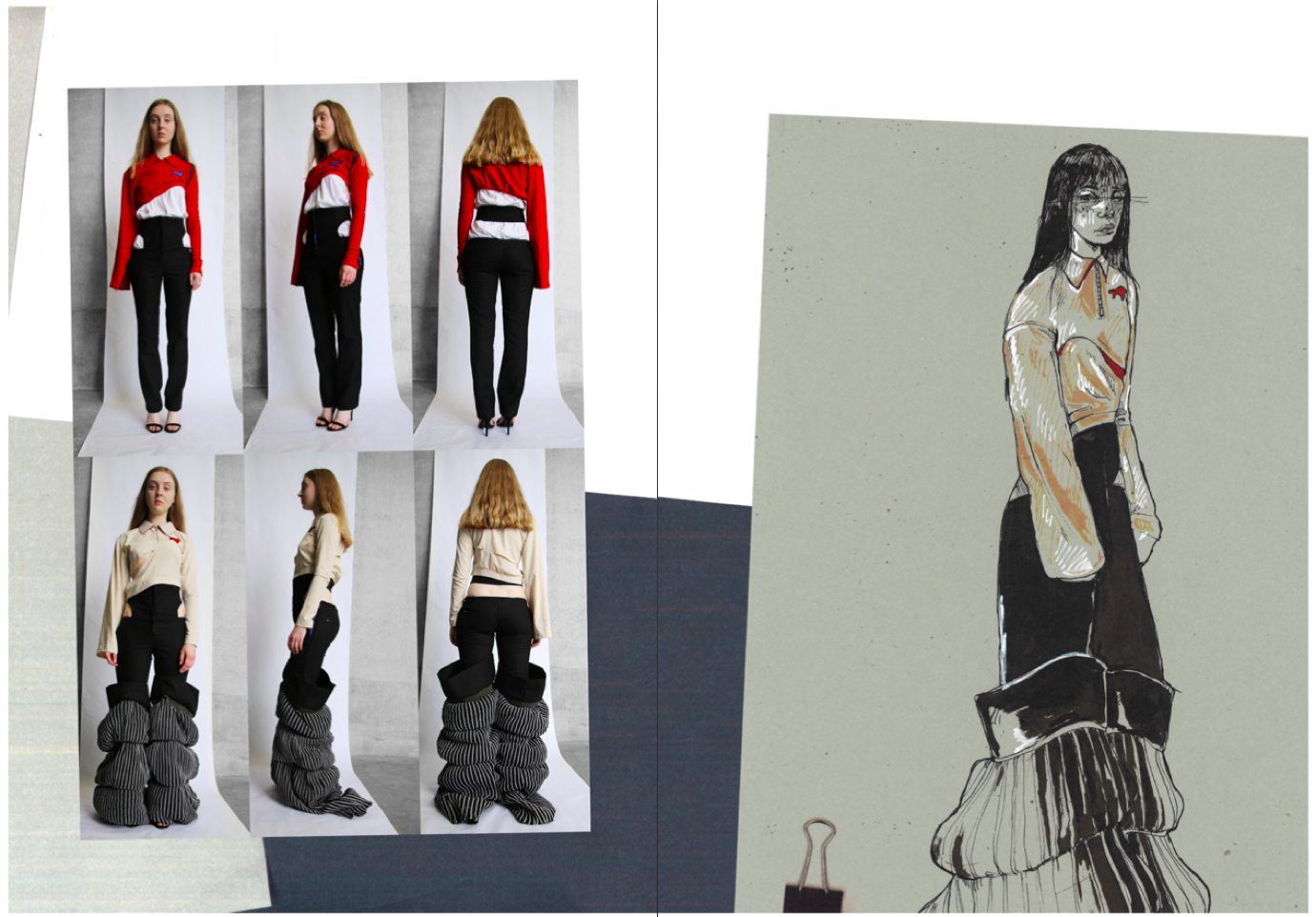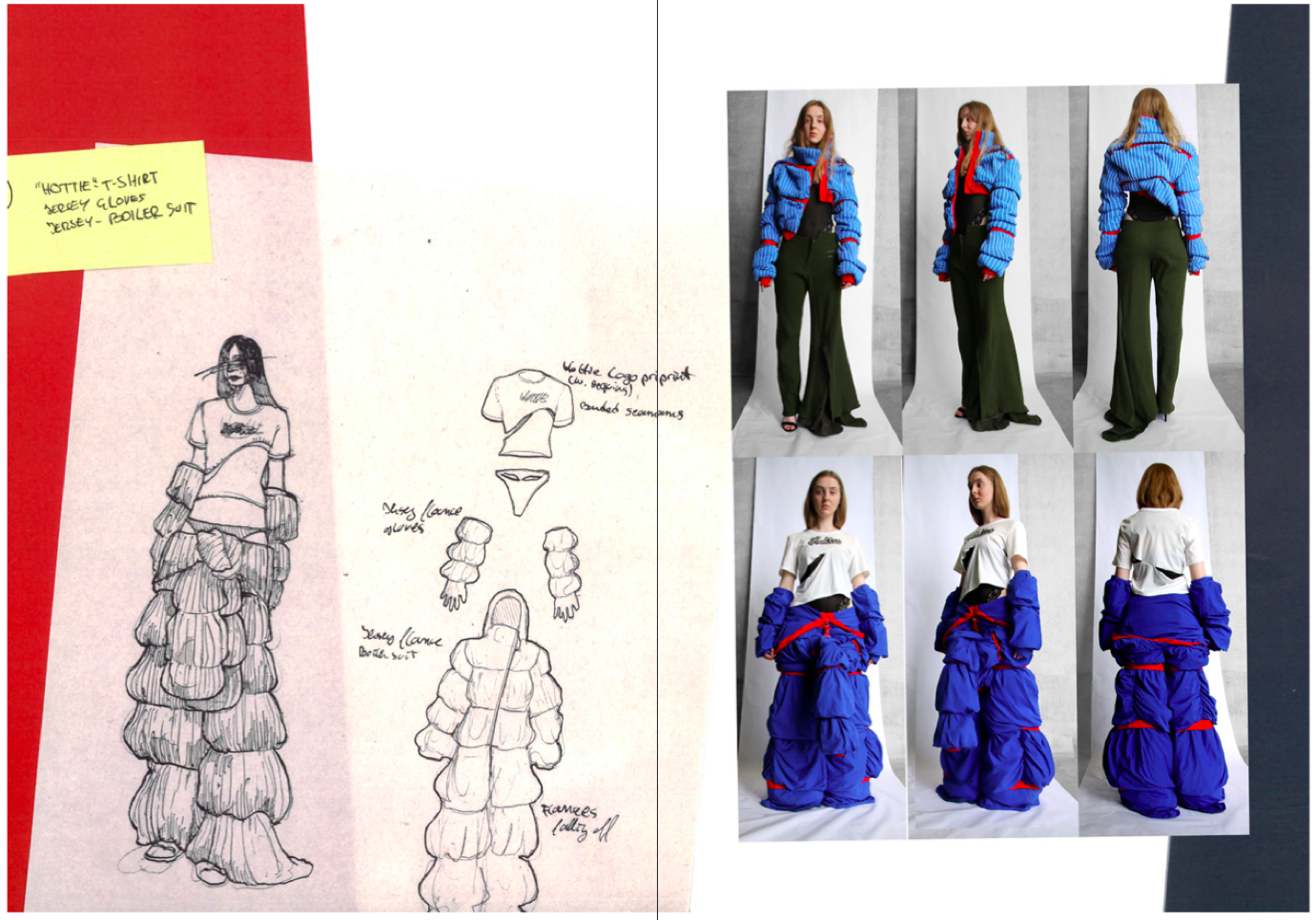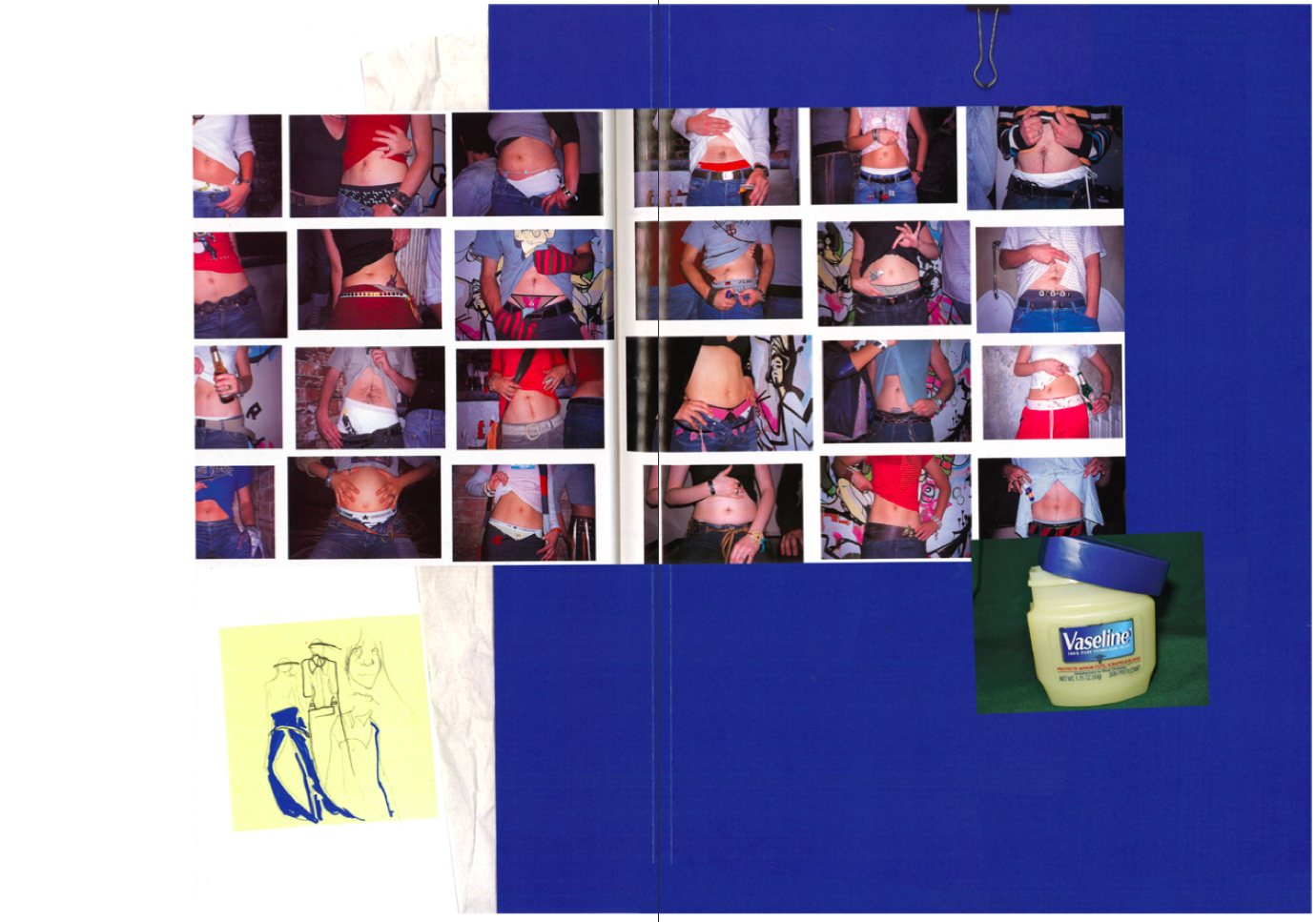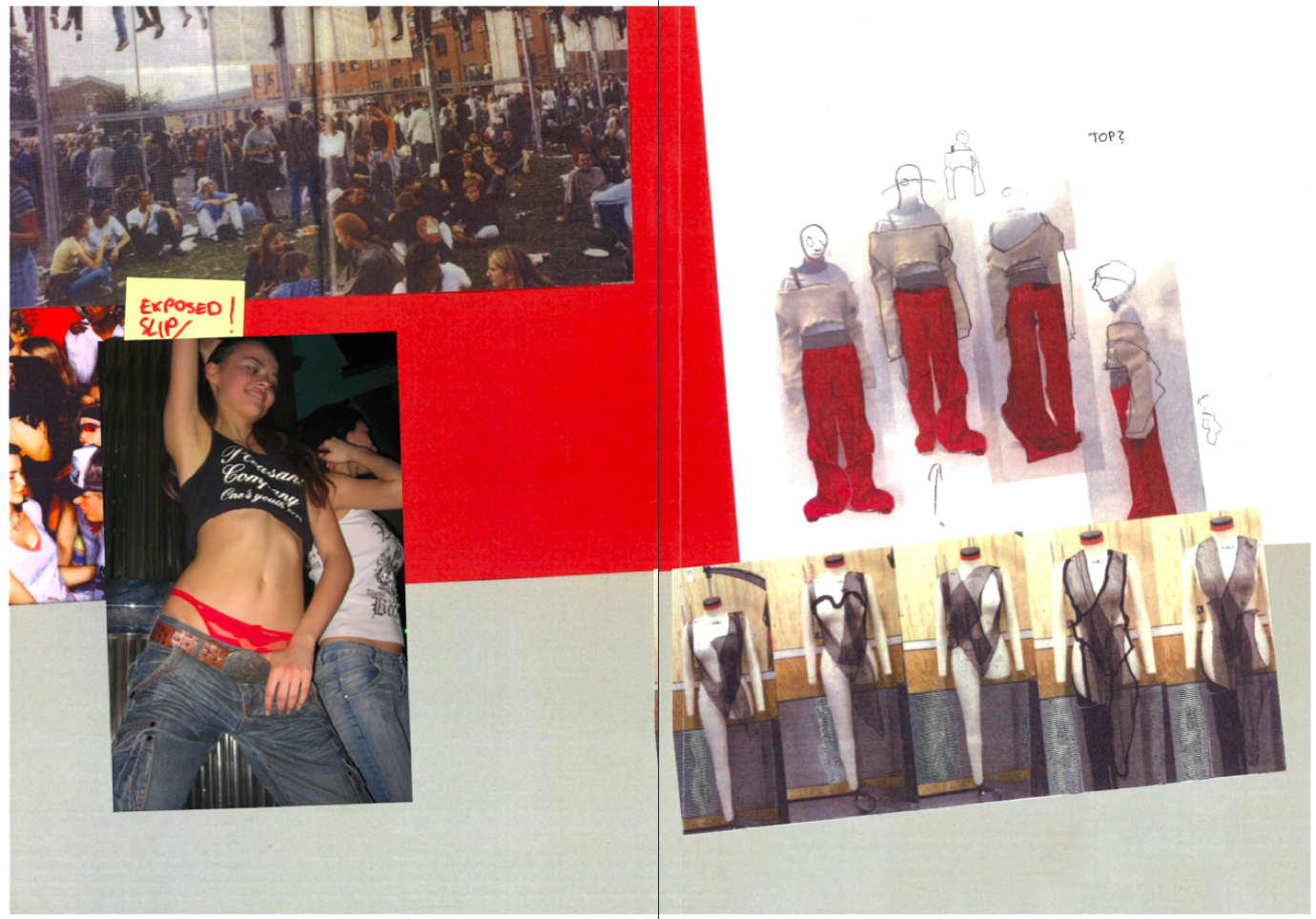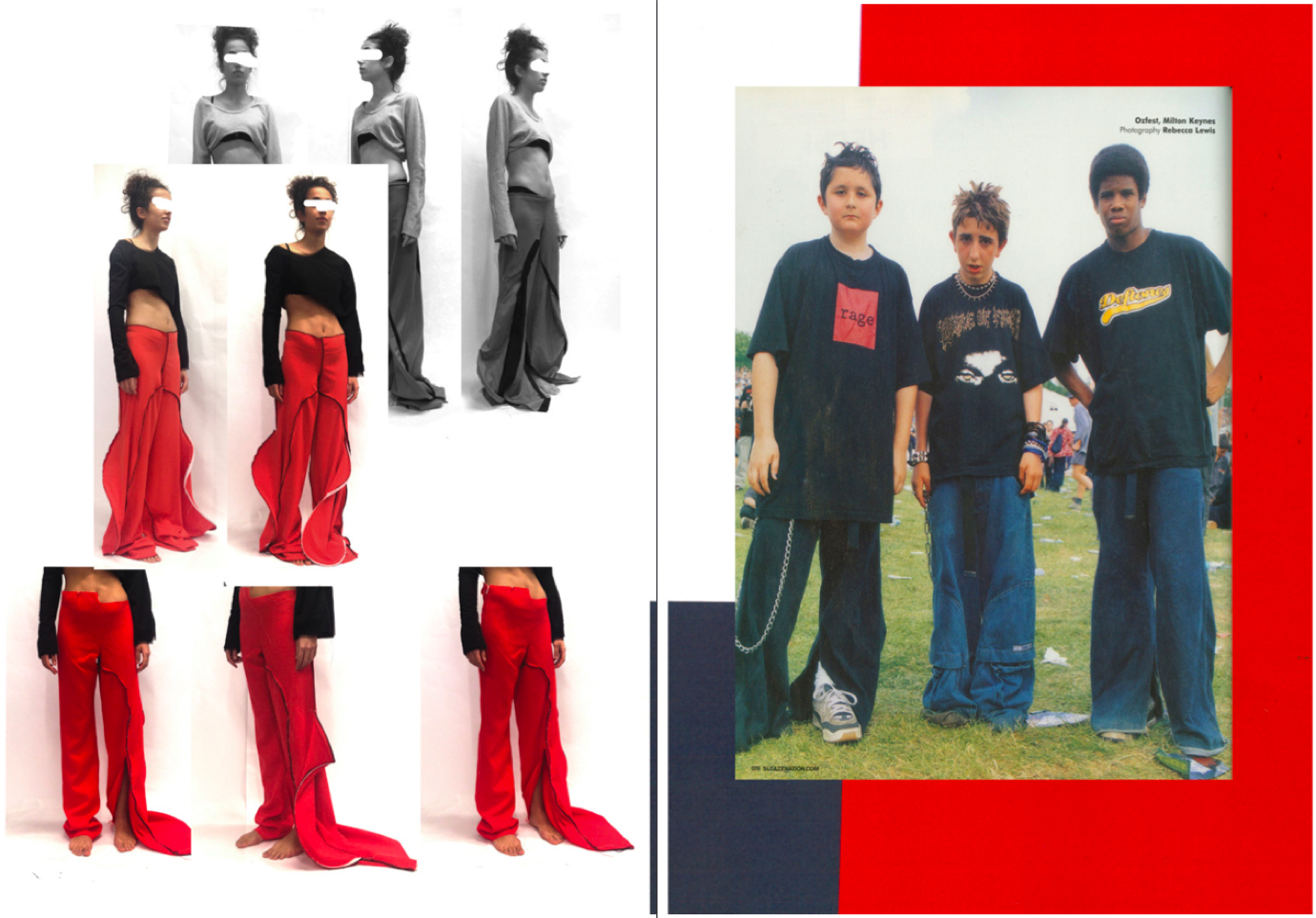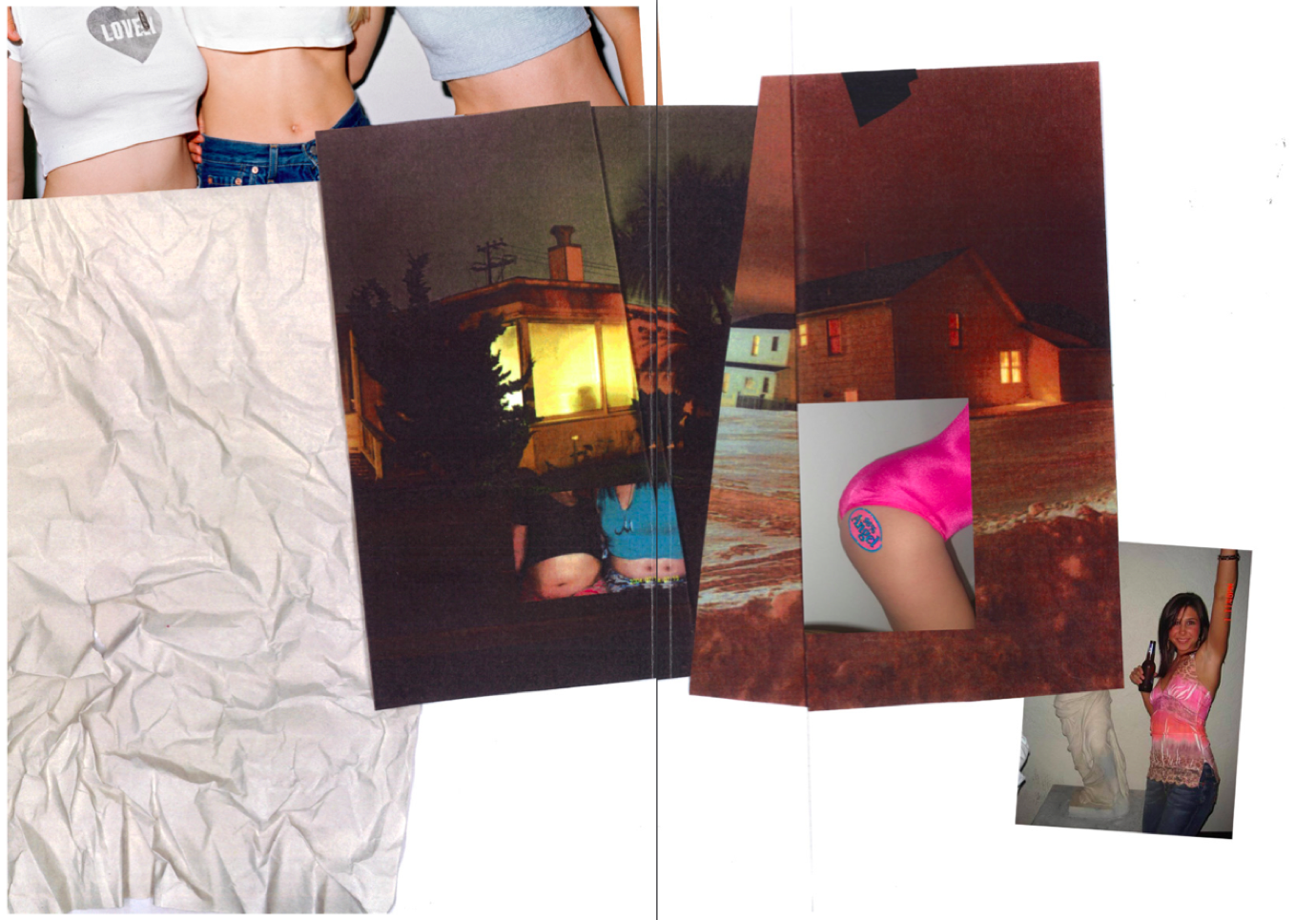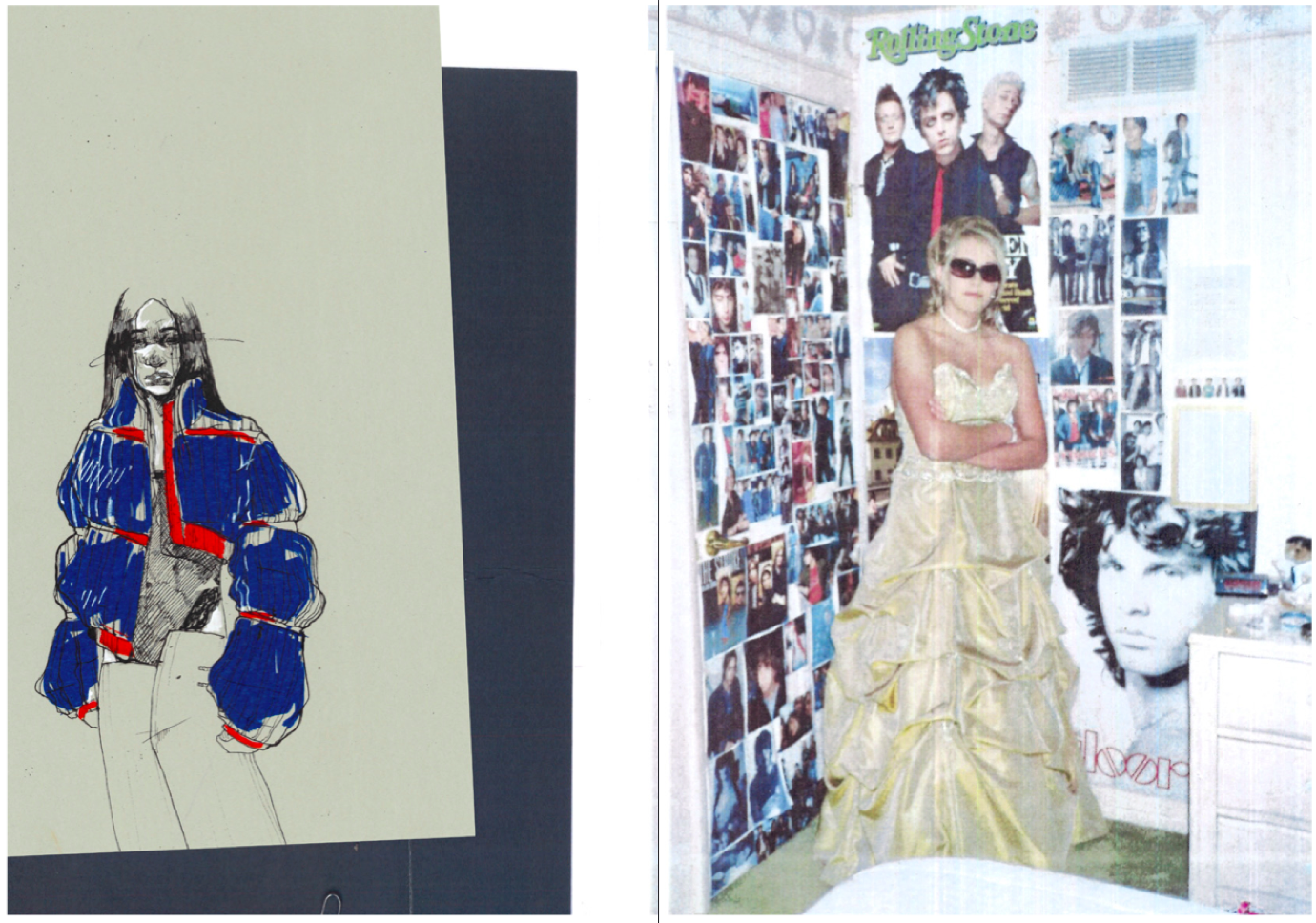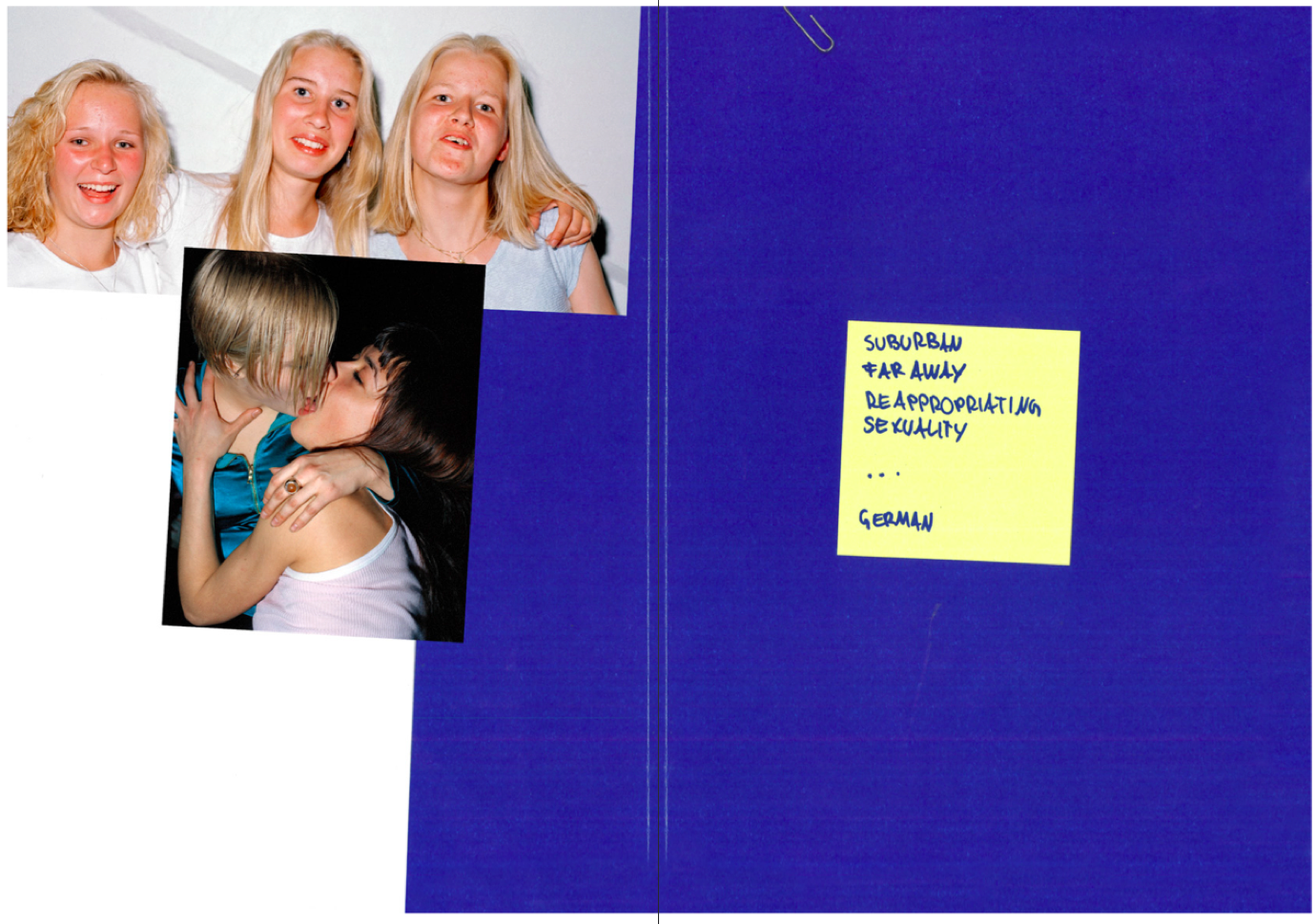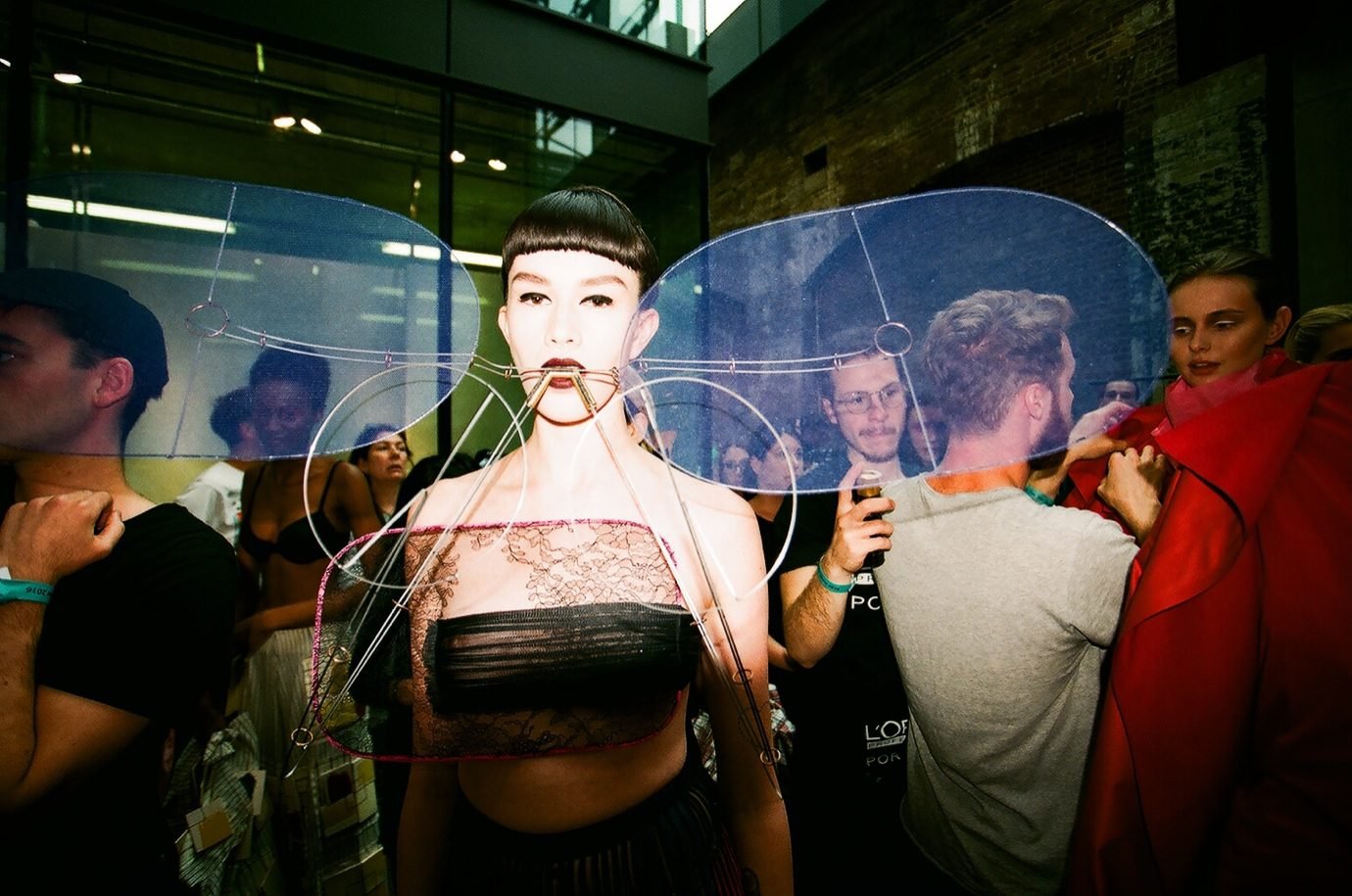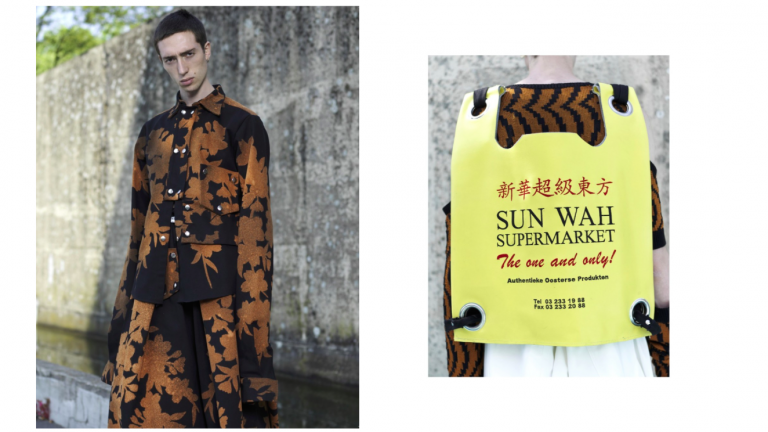“AS THE END RESULT IS MEANT TO BE CLOTHING, ANYTHING ELSE BUT WORKING IN 3D SEEMS IRRELEVANT TO THE PROCESS.”
How does the conversation between 2D and 3D work for you, how much does one inform the other?
Albeit being very passionate about drawing, I find it quite useless when it comes to designing clothes. For me drawing is a separate process, when it comes to garments I prefer to go straight to making things. I have very little spatial awareness, so I find it hard to accurately visualise a garment unless I have it directly in front of me. To me, as the end result is meant to be clothing, anything else but working in 3D seems irrelevant to the process.
What did you do during your placement year?
I interned at John Galliano and Kenzo.
Did your experience in the industry give you a better insight into how the business of fashion actually works?
Very much so, CSM doesn’t aim to educate you in the business and industry sides of fashion. So doing as many placements as possible has been a really important aspect for the last four years for me. From how things are priced, to how different companies facilitate their design teams, to learning Adobe Photoshop and Illustrator – placement year was definitely the most dense year for me in terms of learning.
What advice would you give to students choosing their placements?
It’s definitely important to gain insight into as many different companies as possible. The most satisfying placements, in terms of enjoying it and gaining actual experience, always seem to be at the small labels. But at the same time it’s important to get insight into the processes of a big company.
What do you think that you can do to improve the fashion industry? Is finding systematic solutions to some of the big problems in fashion something that design students should or shouldn’t be concerned with?
Inducing any meaningful change would require substantial amounts of influence and money behind you. So I think that before one could genuinely change aspects of the system, it would require years of amassing said capital and influence. Consequently it seems to me that – while it’s important to be aware of these things – as long as people don’t know who you are, no one in a position to change things will take you seriously.

